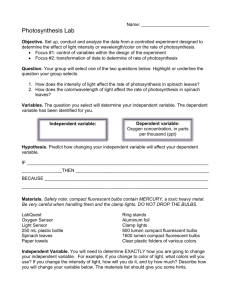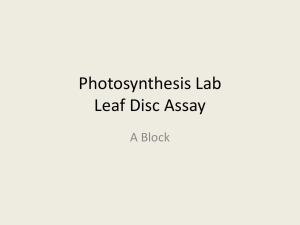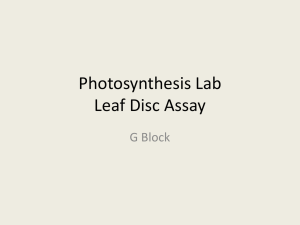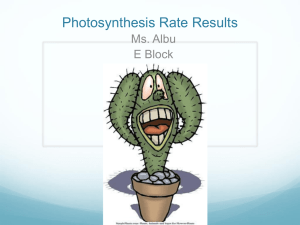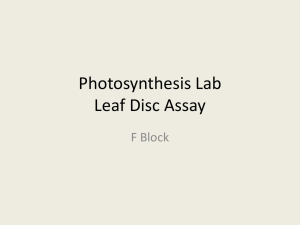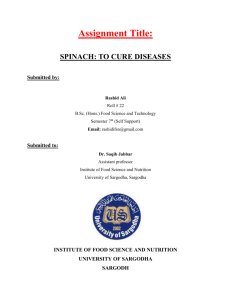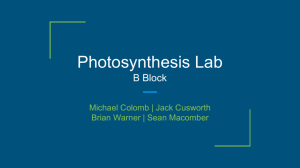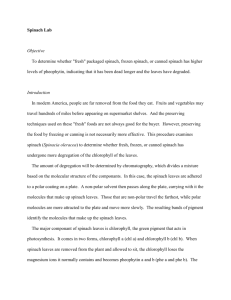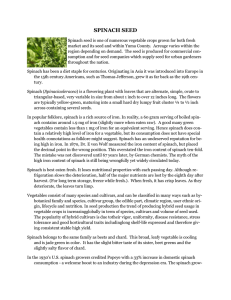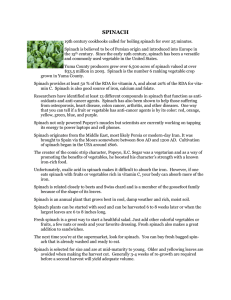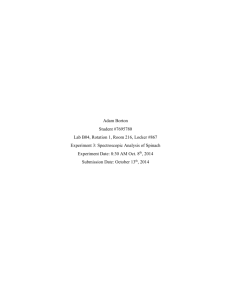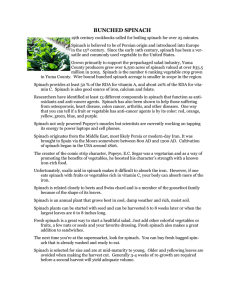Photosynthesis Data B Block
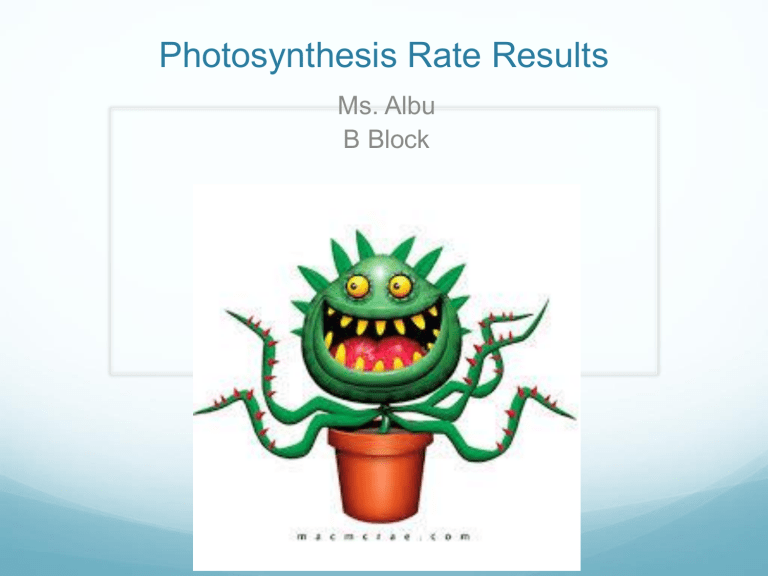
Photosynthesis Rate Results
Ms. Albu
B Block
Photosynthesis Lab Findings
● Our graph: ● We tested the photosynthetic rate of leaf discs of spinach
(control) to arugula
(experimental) under a 100 watt lamp
● Spinach had a higher rate of photosynthesis
● We observed spinach to be more green in color than the arugula
180
240
300
313
0
60
70
120
Time
(Seconds)
7
9
5
6
10
Spinach
Discs
Floated
(Control)
0
1
-
Green
Mustard
Discs
Floated
0 al)
6
10
-
-
-
-
-
Manoj Malipeddu, Nam Le, Thien
Vu
Average Rate (Green Mustard
Leaves) = 10 discs / 70 seconds =
.14 discs / second
Average Rate (Spinach Leaves) = 10 discs / 313 seconds = .032 discs / second
Alex Cardeiro, Jonathan Townsend,
Ryan Ditcham
Rate of Photosynthesis over Time for Spinach Leaves and
Crabapple Leaves by Shyam, Karthik, and Michael
● Spinach Leaves photosynthesized at a faster rate than that of the
Sweet Crabapple Leaves
(0.9 leaves/min vs. 0.8 leaves/min)
● Since the Spinach leaves were darker than the
Sweet Crabapple leaves, it photosynthesized faster; the darker leaves allowed it to absorb the light more efficiently
Rate of Photosynthesis in Mint and
Spinach Leaves
Shannon Forty, Aine Holland, Jillian Nelson, and Nancy Wang
Photosynthetic rates:
Spinach: 16/228 seconds = 0.0702 floats/sec
Mint: 16/320 seconds= 0.05 floats/sec possible sources of error:
★ 4 mint leaves already at surface before start of experiment
★ only did one trial
Our hypothesis was incorrect, because the spinach leaves had a higher rate of photosynthesis. While all 16 spinach leaf chads photosynthesized in 3 minutes 48 seconds (or 228 seconds), it took about 5 minutes and 20 seconds (or 320 seconds) for 16 mint leaf chads to photosynthesize. According to our research, darker green leaves appear darker because they absorb more light. By absorbing more light, the leaf would be able to photosynthesize at a higher rate than a leaf with less light absorption. Thus, the darker spinach leaves photosynthesized at a higher rate than the lighter mint leaves because of the difference in leaf color.
Hypothesis: If rate of photosynthesis in mint and spinach leaves was tested, then both plants would have relatively similar respiration rates because their growing conditions are similar.
Rate of Photosynthesis in Spinach and Kale
Summary
The rate of photosynthesis in kale was faster than that of spinach. Kale has a relatively thicker leaf which means that it has more intercellular space that can be filled with more mesophyll cells and more layers of photosynthetic cells. This allows for more air exchange and subsequently photosynthesis occurs more frequently during a certain period of time, making for an overall faster rate of photosynthesis.
